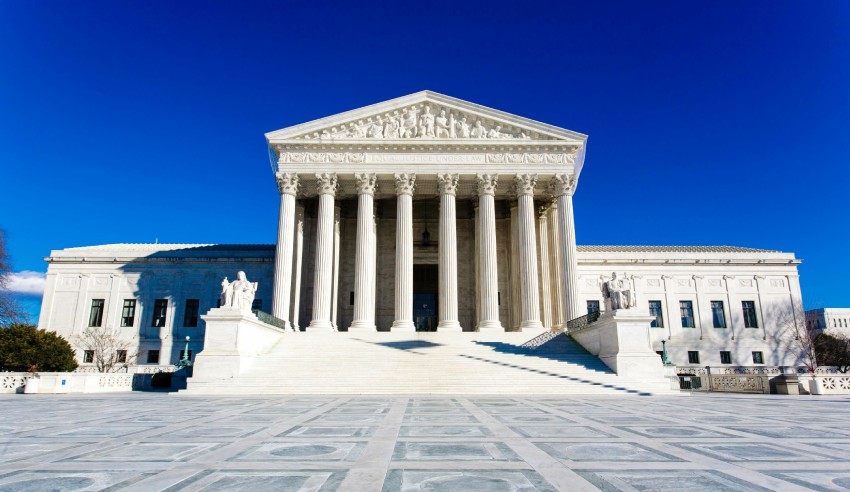The US Supreme Court’s decision to upend the landmark 1973 decision recognising abortion as a constitutional right, which will have “immediate and devastating” impact upon women in America, demonstrates the need for vigilance in Australia, legal advocates say.

The overturning of Roe v Wade and Planned Parenthood v Casey in the United States is a “devastating blow” to the lives of women in America, the Human Rights Law Centre warned over the weekend.
Speaking following the decision, handed down late last week, HRLC associate legal director Adrianne Walters said: “My heart goes out to the millions of women across the US who now face the prospect of losing the legal right to control what happens to their bodies. We can expect to see many Republican-controlled states implement inhumane abortion bans that will criminalise abortion.
“Abortion is healthcare. Access to abortion is a human right.
“No one should fear prosecution and imprisonment for needing healthcare, but sadly, millions of women around the world do. And now, millions more will in the US.”
What has happened in the US has not happened overnight, Ms Walters continued.
“Bit-by-bit, year-by-year, anti-choice politicians and campaigners, lawyers and many others have sought to erode women’s reproductive rights,” she said.
Here in Australia, important reforms have been achieved in recent times, she mused.
“The situation in the US shows us that we must remain vigilant, as well as doing much more to ensure that every person can access abortion care regardless of their income, where they live or who they are,” she argued.
“In recent years, we’ve seen anti-choice politicians around Australia borrow from the US anti-abortion playbook to try to thwart important reforms in Queensland, NSW, South Australia and through the former Morrison government’s flawed Religious Discrimination Bill.”
Most states in Australia have now reformed their laws to decriminalise abortion and ensure that abortion is treated as healthcare, with South Australia’s reforms set to commence in two weeks. However, Western Australia still lags behind.
“It is beyond time for the McGowan government to act,” Ms Walters posted.
“It’s important to remember that the law is only part of the picture. Access to reproductive healthcare in Australia is tenuous for many.
“There is so much more that governments can do to properly fund and support reproductive healthcare around Australia, from increased public funding to nurse-led care. This would result in better health outcomes for everyone.”
Castan Centre for Human Rights Law deputy director and Monash faculty of law senior lecturer Dr Ronli Sifris added that the impact on American women from this ruling would be “immediate and devastating”.
“This decision will disproportionately affect the poorest and most vulnerable who are unable to travel to more liberal states to access abortion services. The removal of constitutional protection of abortion in the United States will lead to a regression back to the times of backyard abortions. Women shouldn’t have to place their health or lives at risk to access what the World Health Organisation describes as one of the safest medical procedures,” she said.
“Abortion is a human rights issue and shouldn’t be recast as a states rights issue. We know that restrictions on abortion may seriously impact many fundamental rights of those seeking an abortion, including the rights to life, health, privacy, equality, and freedom from torture or cruel, inhuman or degrading treatment or punishment.”
While there is no ban on abortion in Australia, Dr Sifris mused, she agreed with HRLC in stressing that “we must remain vigilant against encroaches on women’s reproductive freedom”.
Monash school of public health and preventive medicine research fellow Dr Shelly Makleff added that the ruling is a “massive setback”.
“The right to a critical health service is being taken away, with dire implications. People will be forced to give birth, people will be criminalised, and the most vulnerable communities will be disproportionately affected,” she said.
“With the reversal of the constitutional right to abortion as set forth in Roe v Wade in the United States, we’re reminded once again that the legal protection of bodily autonomy cannot be taken for granted.
“Unlike the time before Roe, we now have medical abortion as a safe option for self-management of abortion. The risks for abortion seekers will increasingly be legal in nature in states that have criminalised abortion.
“As we have seen in Latin America and elsewhere, feminist movements in the US are mobilised to support abortion seekers to ensure access to care.”

Jerome Doraisamy is the managing editor of professional services (including Lawyers Weekly, HR Leader, Accountants Daily, and Accounting Times). He is also the author of The Wellness Doctrines book series, an admitted solicitor in New South Wales, and a board director of the Minds Count Foundation.
You can email Jerome at: